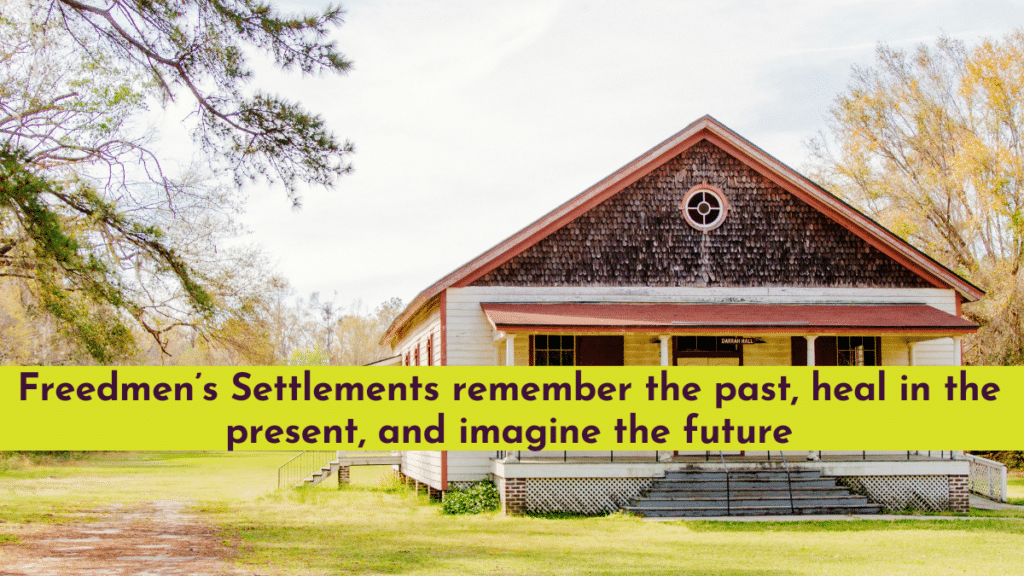Freedmen’s Settlements remember the past, heal in the present, and imagine the future

By Jacqui Patterson and Denise Fairchild
James Baldwin once observed that, “History is not the past. It is the present.”
From 1865-1920, hundreds of “Freedmen’s Settlements” across the South and beyond were established by people emancipated from enslavement who strived to ensure land and housing security–a place to call home and build community. These communities embody the arc of our history: the scars of slavery, the hopes of Reconstruction, the federal government’s broken promises, the enduring harms of racism, and the solidarity, determination, strength, and resilience that has sustained African American communities for centuries. The past is alive in the present.
Many Freedmen’s Settlements have managed to thrive despite adversity.
Though Freedmen’s Settlements have been historically deprived of basic necessities, others have literally been burned to the ground by those who resented the very notion of Black people doing well. Working against tremendous odds by relying on their ancestral cooperative and collective traditions to meet their economic, spiritual and social needs, several have risen above, and through sheer determination and fortitude, they have carved out an existence full of promise and possibilities!
For example, Edmondson, Arkansas, emerged in the early 20th century as a thriving hub of Black-owned businesses, churches, and cotton farming, governed by African Americans from the start. Although the town’s white neighbors stole hundreds of lots from the original Black owners in the 1930s, Edmondson residents persisted and persevered, rebuilding churches, homes, and community after floods, fires, and storms. Even though it has yet to return to its fullness in thriving, the fact that it still exists as a Black community is a testament to the power of determination.
Allensworth, California was the first town in California to be founded, financed, and governed by African Americans. Once a thriving town off a main railroad line, Allensworth faced a series of racially motivated blows: the Santa Fe Railroad moved its train station to another town; a white-owned development firm diverted the town’s water supply. Subsequent drought and groundwater pollution left the town under-resourced and sparsely populated. But Allensworth residents have since organized to revitalize the town through agriculture and historic preservation, securing $40 million in state funding in 2022.
Langston, Oklahoma, Eatonville, Florida, and Independence Heights, Texas are three additional examples of communities that have paved a path to fulfilling the dreams of the ancestors who founded these communities.
Click here to read the full Medium article, and click here to sign our petition urging the Biden-Harris Administration to fund and protect Freedmen’s Settlement Communities.
